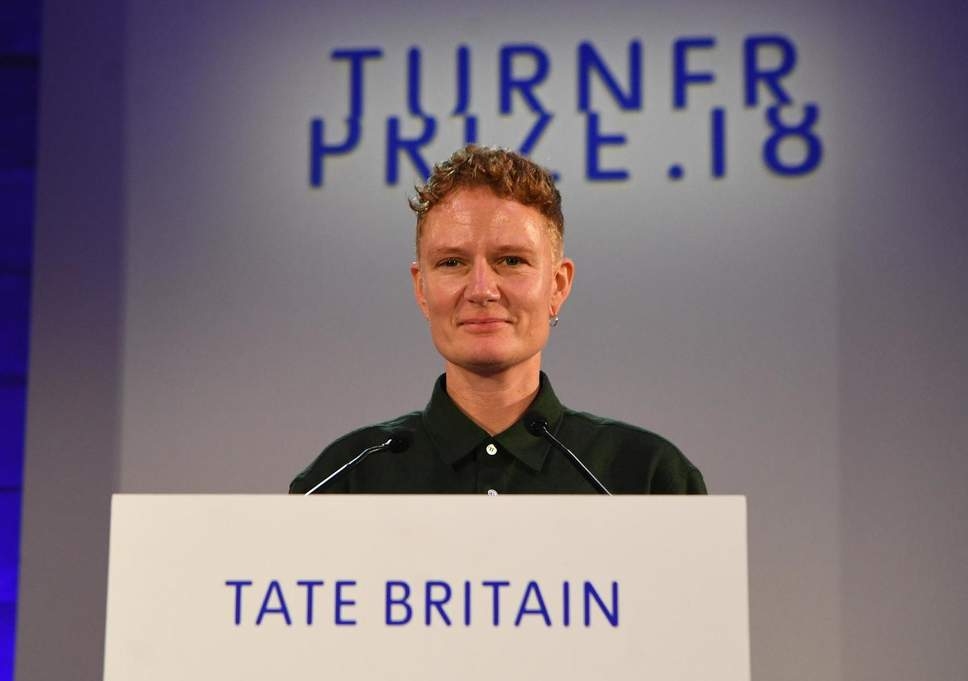iPhone artist Prodger wins Turner Prize

A highly personal film shot by artist Charlotte Prodger on her iPhone, which recalls her experiences of coming out as gay in rural Scotland, has won her the prestigious £25,000 Turner Prize.
The Glasgow-based artist, known for exploring queer identity, won the annual art award for two of her videos.
One of those, titled Bridgit, was filmed entirely on her phone and features her reading from her diaries.
Prodger said she was "quite overwhelmed" and "very touched" to win.
"The stories that I'm telling, although they're mine and they're personal, are stories that a lot of people - I guess queer people - have experienced," she told BBC News.
The award caps a good year for the 44-year-old, who has also been chosen to represent Scotland at the 2019 Venice Biennale.
The judges said they "admired the painterly quality of Bridgit and the attention it paid to art history".
Tate Britain director Alex Farquharson, who chaired the jury, said the winning artwork "seems to make a lot of points for a younger generation".
He said: "It deals with gender as unfixed, as something fluid, as something not always conforming to society's norms."
Political concerns loom large
Bridgit is named after the Neolithic deity, while the other video in Prodger's winning exhibition is titled Stoneymollan Trail and traces a history of recent video formats and the artist's personal history.
For the first time in the prize's history, all four artists were nominated for films, and the shortlist was also regarded as the most political ever.
That political theme continued at the award ceremony itself, where Tate director Maria Balshaw used her speech to bemoan the pressures on students and schools that have led to a "steady decline in the number of students who are enrolling for arts subjects".
She told the audience: "It is not good enough - not good enough for young people, and not good enough for the future that we should wish for, for this country and the world".
The number of students taking GCSEs in subjects covering arts, design, media and performance have declined by around a quarter over the past five years.
In her acceptance speech, Prodger also spoke in support of arts education and funding.
"I wouldn't be in this room were it not for the public funding that I received from Scotland for free higher education, and then later in the form of artist bursaries and grants to support not only the production of work but also living costs," she said.
The prize's other nominees included Forensic Architecture, a collective of architects, film-makers, software developers, journalists, lawyers and scientists whose investigations and reconstructions have provided decisive evidence in cases in countries including Germany, Greece, Israel and Guatemala.
Then there was Luke Willis Thompson, who is inspired by stop-and-search policies and killings. His films include one made with Diamond Reynolds, who used Facebook to broadcast the aftermath of the fatal shooting of her partner, Philando Castile, by a police officer in 2016.
The shortlist was completed by Naeem Mohaiemen, whose films use turbulent periods in world history to examine the legacies of colonialism, national identity, left-wing politics and migration.
Prodger was presented with her prize by author Chimamanda Ngozi Adichie at a ceremony at the Tate Britain gallery in London.
